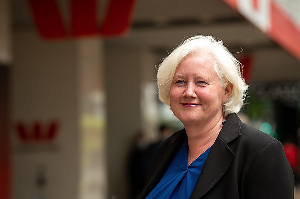
The latest KiwiSaver data for Q3 released last week showed all multi-sector funds delivering a positive performance, with funds’ returns in close range from 2 to 5%. Kernel topped the High Growth and Cash categories across the 1 year time period, and came through second in Balanced. In other asset classes, Kernel took out the spot for highest returns over the 1 year period in international shares and second in property.
Kernel Wealth chief executive Dean Anderson said going forward, scale would be a challenge for active managers, even if they continue to deliver positive results over the long term.
“When you're dealing with such a big pot of money and the New Zealand market that's quite small and not that liquid, that forces them to put money overseas.”
“And I guess the investor question is, why do we think we know that a little manager at the bottom of the world is going to have an edge over anybody else,” he said.
“So this capacity constraint is really becoming a thing.”
Anderson said while it was early days for Kernel, next year the provider’s three year returns would come through in the numbers. He said the company remained focused on creating a structure which balanced the right benchmarks, with the right fees. Although the increased range of options available to investors now had seen plenty of downward pressure on those management fees.
“You have seen active management fees come down, but you also see passive fees come down. We're another good example of that.”
“But there's that big hurdle of how you're going to deliver that outperformance consistently and again, looking over five or 10 years.”
“So there's a long road ahead still, but I think investors are going to look back in five or 10 years from now and see quite different results with the KiwiSaver benchmarks and others, compared to maybe what this looked like in the past,” he said.
Consumers more savvy than we think
Investors have moved on from the passive versus active debate, according to Anderson, and it is no longer the religious discussion it has been in the past.
And he reminds advisors their clients might understand more than they realise, with a huge shift in awareness around index investing at a consumer level over the past five years.
“If you go and look at the personal finance page and read it, there are over 100,000 Kiwis in that now, and they are talking about index funds.”
“You've got a lot of blog content, you've got a lot of social media that has informed people now and they understand what ultimately is important to building a long term wealth around habits, fees.”
“So you need to be conscious and go, okay, index funds will play a part.”
The market had matured significantly since when ETFs first came on the scene, he said.
“We're having a lot more conversations around, what does the index do, what's the exposure, what's the tax structuring?”
“And we've got to that next stage where we're having conversations about, what role does it play for a particular asset class, or as a core in a portfolio?”
Anderson said there was growing acceptance among advisors that these tools are there to use but their focus should be on where they can add value.



